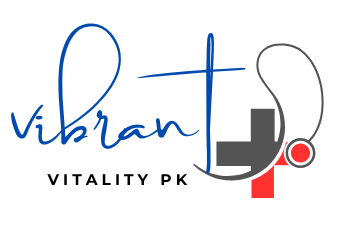WEIGHT GAIN IN 15 DAYS BY EMPLOYING 5 HEALTHY STRATEGIES
Weight Gain

Healthy weight gain is an outcome of healthy eating and progressive life style. Healthy weight gain is inevitable for growth, development and to effectively deal with certain preventable ailments. It is solely dependent upon nutritious diet and abstaining from unhealthy eating routines.

World Health Organization in 2023 passed certain recommendations to discourage unhealthy weight gain. WHO recommended that adults must reduce the fat intake to 30% of the total caloric intake. Secondly, fat utilized must primarily focused on unsaturated fatty acids with less than 10% intake from saturated fats and less than 1% from trans-fatty acids. WHO recommendations pour light on suitability and emphasis on healthy weight gain.
Most of the people confront with a problem of being underweight. Although, there are multiple weight gain strategies but one strategy is not applicable on all. If one is underweight the required level of nutrition which is helpful for growth of body will definitely diminish which is why the growth of hairs, skin and bones may affect directly. Owing to which there are probabilities of developing certain diseases like anemia, lethargy, osteoporosis or more.
One must also consider the genetic orientation as well towards being underweight or overweight. If one is keen to apply weight gain interventions then firstly one has to consult doctor or dietician as well. In this article, we will discuss causes of being underweight, strategies for weight gain and diet of weight gain as well.
WHO ARE UNDERWEIGHT?
First of all, one must focus of calculating the weight to determine whether it is underweight, normal or overweight. In order to determine whether one is having healthy weight or not we could use BMI (Body Mass Index). BMI can be calculated through using weight and height of a person. The Centre of Disease Control and Prevention also recommend BMI measure to calculate whether one is overweight, normal or underweight.
A person having BMI between 18.5-24.9 will be considered as normal and healthy weight range. Similarly, a person having BMI less than 18.5 will be considered as underweight. Such individuals may require proper guidance from dieticians and doctors about diet, weight gain and precautions.
However, there are certain indicators which BMI overlook like body mass. Because one body builder may be calculated as high BMI rating but he may not be fat but the weight may be due to muscle weight. But, still BMI is considered as a best measure to calculate healthy weight.
The ranges of BMI which shows whether one is carrying healthy or unhealthy weight are as follows:
| Underweight | Normal | Overweight | Obese |
| Less than 18.5 | 18.5 – 24.9 | 25 – 29.9 | More than 30 |
However, these calculations may vary for a sportsman owing to muscle mass. It is due to the fact that muscles carry more weight than fats.
WHAT RISKS ARE ASSOCIATED WITH UNDERWEIGHT?
Being underweight may be due to several reasons especially due to malnutrition which has its own negative impacts. For instance deficiency of vitamin D may lead towards bone damage. Therefore, it is always suggested to take ample amount of calories to keep healthy weight gain and to facilitate growth and development. A low calorie diet and being underweight may deteriorate health and may cause:
- Poor nutrients availability to the body cause hair loss and other hair related issues.
- Lack of nutrition may leads towards skin thinning and dryness.
- Being underweight ma y leads towards dental disorders like dental carries, pits etc.
- Nausea is also an outcome f poor diet and weight loss.
- Body requires sufficient amount f calories to carry out body functions and facilitate in body growth and development. Lack of nutrition may cause fatigue and lethargy.
- Poor dietary habits and frequent junk food intake ultimately compromised immunity and make a person more prone to be caught by infections time and time again.
- Infertility is also another outcome of poor nutritional intake which causes body and hormonal imbalance.
- High risk to encounter infections due to poor immunity
- A study conducted in 2016 suggested that women are more at risk of osteoporosis being underweight. Osteoporosis may damage bones and make them brittle. Therefore, healthy weight is a blessing.
- Unhealthy body mass may leads towards anemia which is a condition of low blood level inside the body. Anemia cause headache, fatigue and dizziness.
- Underweight women may encounter irregular periods due to disturb menstrual cycles. There adolescent period may also delay. Such irregularity may transform into infertility.
- It is also observed that underweight women may become victim of premature baby birth i.e. birth before 37 weeks.
Although, it is quite clear that being underweight may leads towards certain ailments yet weight gain should be safe and healthy. One must focus on balanced diet and timely meal along with cardiovascular exercises. Without, rational approach towards weight gain, one could also caught in severe clichés of obesity.
Furthermore, one study revealed that the underweight people have more mortality rate then healthy BMI people. It is due to the fact that the healing processes slow down due to lack of nutrition and healthy diet. The underweight people are therefore more prone to take longer time to heal after trauma or accident.
WHAT ARE 5 WEIGHT GAIN STRATEGIES?
Rise in Daily Caloric Consumption
The prime way to gain weight is to eat more calories than needed daily. Calorie calculator may assist in this manner to calculate the estimated amount of calories. Be cautious because calorie calculator just provide an estimate therefore you have to adjust calorie intake according to your daily exertion or working nature.
There are two ways whether to gain weight slowly or fast. If one wants to gain weight slowly than one has to increase about 300 to 500 calories more than body requirements daily. If weight gain is needed abruptly than one should aim to get 700 to 1000 calories than body requirements.
Expedite Protein Intake
It is research proven that quality protein intake is needed not only for weight gain but also for growth, development and overall well being. A study conducted in 2020 revealed that the daily protein intake raises the muscle mass.
A healthy dietary allowance of protein per day for better muscle and skeletal growth is 1.0-1.6 grams of proteins per kg of body weight.
Therefore, in order to weight gain one should add protein rich dietary options in daily routine like eggs, fish, chicken, mutton, beef, nuts and legumes, along with these alternates the other options may include dairy products like milk, yogurt and peanut butter.
But, it’s point to consider that excessive protein intake may diminish appetite which may restrict one to take limited meals and most importantly excess amounts of proteins may cause heart problems as well.
Carbohydrates and fats Intake
It is suggested to utilize more carbs and fats to gain weight. It is more beneficial to add proteins, carb and fats in daily meal to not only enhancing the nutritional density of food but also facilitate in weight gain.
The people who employ weight loss strategies like intermittent fasting than the aim of weight gain may be compromised due to less opportunities to eat maximum calories per day. Therefore, it is advisable to eat 4-5 meals a day to weight gain. But the weight should be based upon healthy dietary options based.
Energy Dense Food Intake
Weight gain should be nutrition based and the emphasis should be on nutritionally dense whole food like fruits, vegetables, legumes and grains. Although, these food options are nutritious yet not provide ample calories. One could add spices and toppings to build taste to eat plenty of it.
There are certain nutritious and energy dense food options which may be used for weight gain:
-Walnuts, peanuts and almonds
-Dates, prunes and raisins.
-Milk, yogurt, cheese and cream, Olive oil and avocado oils,Brown rice and oats
-Chicken, beef, mutton
-Potatoes and yams
-Chocolate.
Drink Plenty of Water
Water is more beneficial for weight gain because excessive diet need ample amount of water for digestion. It is recommended to drink at least 10-12 glasses of water for proper functioning of digestive system.
Weight gain should be nutrition based and the emphasis should be on nutritionally dense whole food like fruits, vegetables, legumes and grains. Although, these food options are nutritious yet not provide ample calories. One could add spices and toppings to build taste to eat plenty of it.
There are certain nutritious and energy dense food options which may be used for weight gain:
Water is more beneficial for weight gain because excessive diet need ample amount of water for digestion. It is recommended to drink at least 10-12 glasses of water for proper functioning of digestive system.
TIPS FOR WEIGHT GAIN
Weight gain should be healthy and the emphasis should be on nutritious and nutrient dense food options. There are some tips for gaining weight:
- One should eat 3-5 times a day. The diet should be nutritionally dense and healthy.
- Weight training also proves beneficial for weight gain initiative. It helps in gaining weight through increasing muscle mass.
- The sufficient amount of proteins in quantities between 0.8 to 2.0 grams as per kg of body weight is needed to gain weight.
- Addition of carbohydrates and fats into the daily diet of a person.
- It is advisable to drink smoothies and shakes of different fruits and grains.
- Seek doctor advice before commencing the weight gain practices. The suggestions of dietician and nutritionist.
CONCLUSION
Weight gain is possible yet it requires lot of attention and care. Merely, weight gain is not a big deal but blind weight gain may cause serious health problems. One must follow strict diet plans and eat plenty of food which is healthy and nutritious.
Weight gain should be based upon healthy food options and must not include junk foods. The protein, its supplements, whole fruits and vegetables, legumes, seeds, nuts, chicken, meat, beef and fish may help in gaining weight and also provide lean body mass.
.FAQs
Who can initiate weight gain?
People who are lean, underweight or malnourished.
What diet should be used for weight gain?
Whole fruits, vegetable, nuts, grains, proteins, carbohydrates and fats
Is weight gain healthy?
Yes if healthy diet being used






